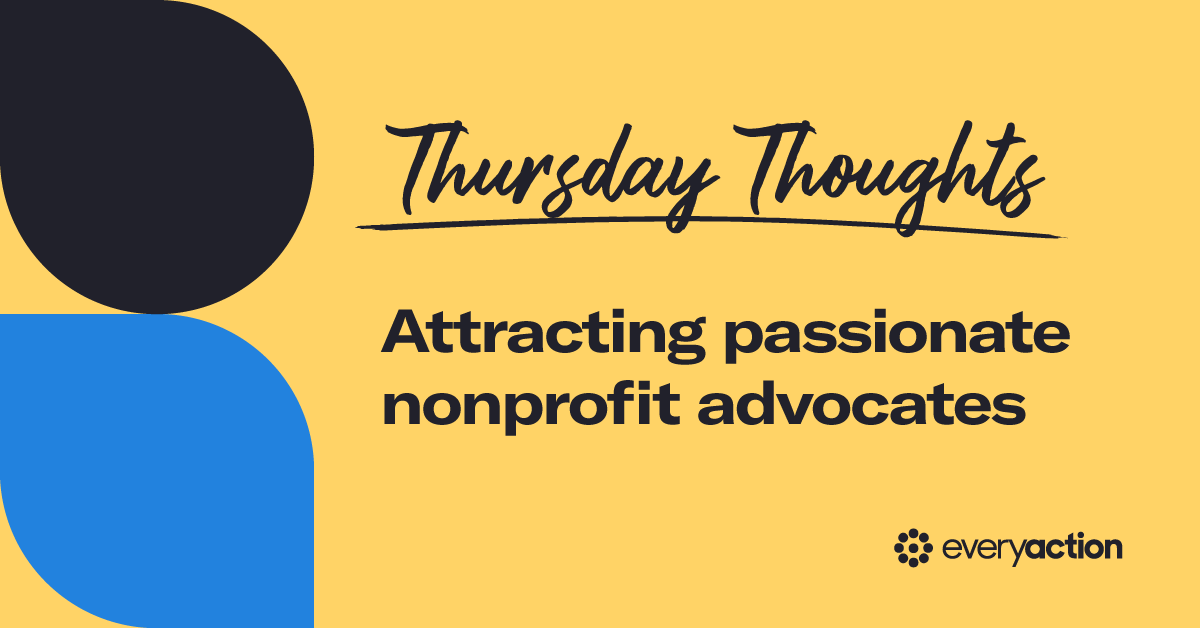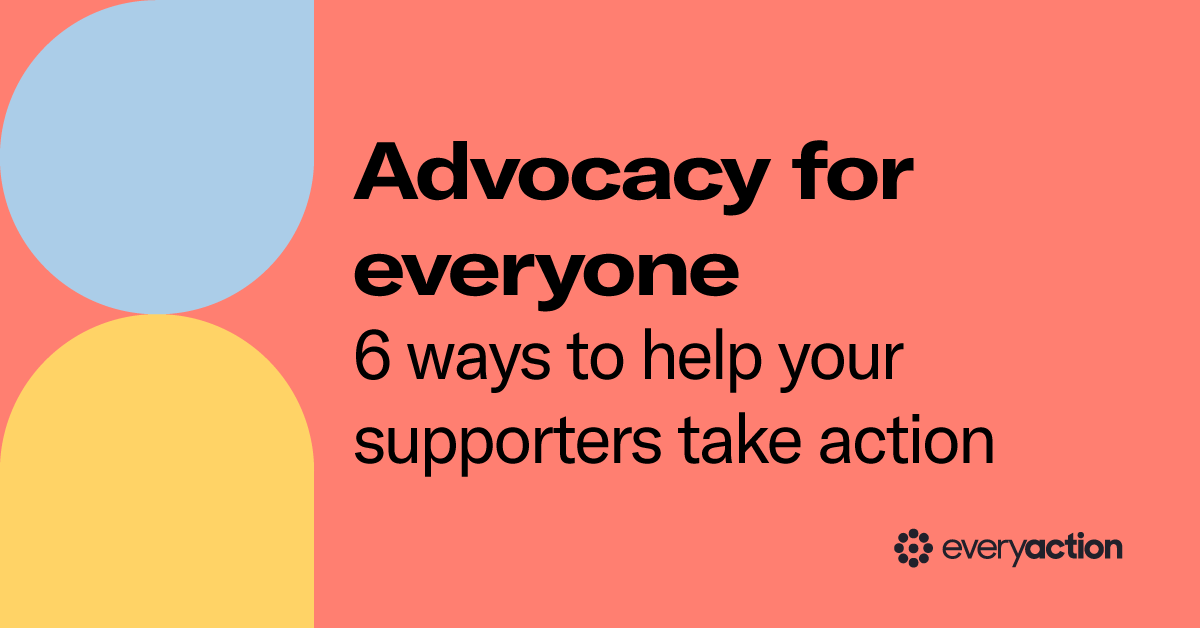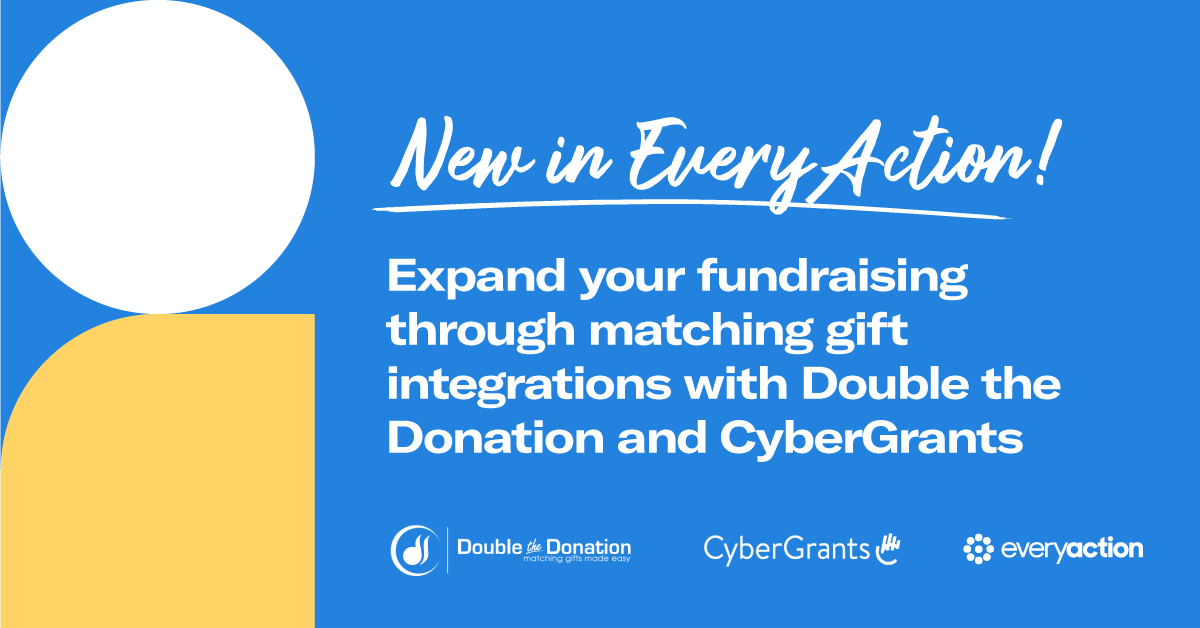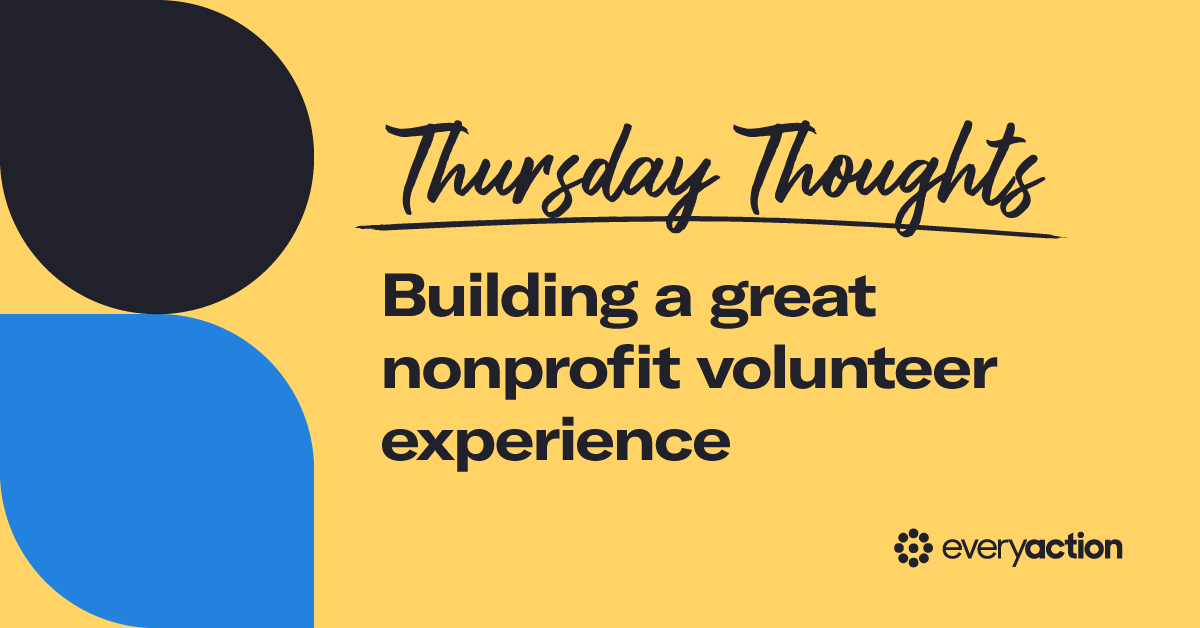Thursday Thoughts: attracting passionate nonprofit advocates

Welcome to another installment of Thursday Thoughts, a dedicated space for our friends in nonprofit sector leadership to reflect on reports, statistics, and other trends—because when our community shares knowledge, we can all do more good. Check out our last installment here!
When you have a goal to meet—like asking a governing body to sign a bill into law, telling a CEO or other stakeholder to change a behavior or policy, or meeting goals around educating decision-makers on your issue area—you know you can’t do it alone. There’s strength in numbers, and you need to build a base of educated and engaged advocates to raise their voices with you. But how can you attract passionate advocates who will show up ready to volunteer, sign petitions, attend rallies, and otherwise take action to help you create positive change? Here’s what our expert partners said.
The Campaign Workshop
Joe Fuld, president
Often campaigns make assumptions that people on the team—volunteers, donors, etc.—understand what you need and why. Don’t assume! Tell your supporters clearly and directly what your goal is, the why behind your goal, and how you need your volunteers to take action. Here are some quick tips:
- Explain why and have a plan: Plan your strategy first, and make sure you have thought through your strategy and resources before you dive into tactics. This will allow you to explain to supporters the reason behind the actions you’re asking them to take.
- Look across silos: Another place folks miss is not looking for advocates in obvious places. Board members, donors, coalitions partners, and folks who have signed a national list but have not taken a local action are all good places to find some of your best volunteers.
- Make sure your ask is clear and to the point: Trade complex language for simple phrasing and remove jargon in order to make sure supporters understand your call to action.
- Don’t just ask once: You’ll need to ask a lot to get a lot. Do not take a non-answer as an answer—get a clear yes or no before you move on. This may mean asking someone five times or more to get an actual response. Don’t lose hope! Being persistent but respectful in seeking a clear answer will ultimately help you bring on more committed support.
- Use a template for your ask and keep refining it: For example, if you’re working to build support for a bill, you might use a variation of this ask to gather petition signatures: “We have been fighting to stop [X] for 20 years. The hearing is next Tuesday at [time]. We are short 100 signatures to reach our goal—act now!”
The Campaign Workshop is an award-winning political consulting firm that specializes in targeted communications, digital, mail, and video for advocacy and political campaigns. Get in touch at TheCampaignWorkshop.com!
Cornershop Creative
Lesley Molecke, founder
When your cause is compelling and your argument is strong, it can be easy to find folks who will get on board with enthusiastic lip service. But the real test is whether or not they’ll do the work of volunteering time and effort.
You can help by ensuring that your ask is clear. Be up front about exactly what you need, be it a petition signature, volunteer hours, committee membership, or peer-to-peer fundraising. Vague or ambiguous asks might feel less scary to make, but they’re also less successful in the long run. Tell folks exactly what you need so that they can determine immediately if they’re up for the commitment and you’ll all be less frustrated in the long run.
As an example, if you really need committee members, be specific about:
- How many months or years the appointment lasts,
- How often your committee meets,
- How long meetings run, and
- How much time they can expect to spend on their committee membership outside of meetings.
If you need volunteers, explain:
- The time commitment,
- The work, and
- Any benefits (like free donuts or coffee) you offer.
There’s no need to sugar coat the ask: people understand they’re being asked to give their free time, and just want to understand more about the size and shape of the ask.
Lesley Molecke is the founder of Cornershop Creative, a web strategy agency dedicated to helping nonprofits make the most of the web. Learn more and get in touch at CornershopCreative.com!
Media Cause
Clara Campbell, senior director, advocacy + campaigns
Attracting advocates who are passionate about your nonprofit’s work is such an important focus—so often, caught up in the rush and pressure of our objectives, we’re tempted just to get all the leads we can and bring in big numbers. But sacrificing quality for quantity is rarely a good idea, because when the going gets rough or when we need to be able to drum up rapid action, we can’t be confident of who will show up and show out. Big numbers might be more impressive to those outside, but I’ll take a smaller, more passionate group any day.
As we saw in the first Barack Obama presidential campaign, there is real wisdom in knowing who your real stakeholders are and investing in them. Don’t spread yourself thin playing where you can’t win. Instead, find the people closest to the problem you’re trying to solve and go deep in organizing among those communities. They’re the people who have the most to gain from positive advances and the most to lose if the status quo continues. They’re also the ones who understand the situation and context best, have the ideas for effective solutions, and have the relationships you need to grow leadership within the movement.
A full-service marketing and creative agency, Media Cause helps nonprofits accelerate their impact. Their diversity in experiences, skillsets, passions, and viewpoints ensures that good missions get the brains and heart they deserve. Learn more and get connected at MediaCause.com!
Ashley Barrow
Garnering the support of passionate individuals is paramount to any successful campaign. In order to attract and activate caring advocates, you need a clearly defined vision, consistent and accessible communications, and multiple opportunities for action. Here are a few key ways to mobilize your advocates:
Provide training opportunities.
There are plenty of folks out there who care about your cause and want to make a difference who simply may not know where to start. Providing advocacy trainings is a great way to equip new advocates with the information and tools they need to get involved and move the needle on your issue. Focus your trainings on digestible information about the legislative process or other relevant processes, ways to take an action, and empowering your advocates to be agents of change.
It’s also important to ensure your trainings are accessible and inclusive! These practices can help you create an environment that is welcoming and available to more of your supporters:
- Provide trainings (virtual or in-person) after working hours.
- If your training is in-person, provide childcare.
- Provide closed captioning, translation services, and materials in multiple languages.
Create a range of opportunities for action.
In order to get your advocates excited and involved, you have to meet them where they are. Some of your members will have the capacity to spend a full day volunteering at the Capitol, some might have time to call their local elected official or other decision-maker, and some may only be able to sign a petition. Each action is equally as important no matter how much time it takes. Decision-makers also need to hear compelling stories from their constituents, customers, and community members, so provide opportunities for your advocates to share their lived experience on your platforms and in front of the people making decisions about and voting on their livelihoods.
Share urgent calls to action across channels.
The time has come to rally your advocates. You need to activate your base and to move the needle on your issue. Use your segmented lists to call folks to action in a timely manner. Cast a wide net with texts, emails, phone calls and social posts. Be sure to give your advocates a clear ask and a deadline— for example: “The vote on our bill is happening at 7 p.m. Tell your legislator to vote yes on this important piece of legislation!” Taking these steps will allow your organization to activate even more supporters around your cause.
Ashley Barrow is a seasoned development professional who has dedicated her career to all things nonprofit fundraising, with a particular passion for mobilizing grassroots donors. She has spent the last seven years focused on fundraising for pressing health and advocacy issues on the state and national level. Connect with her on LinkedIn!


